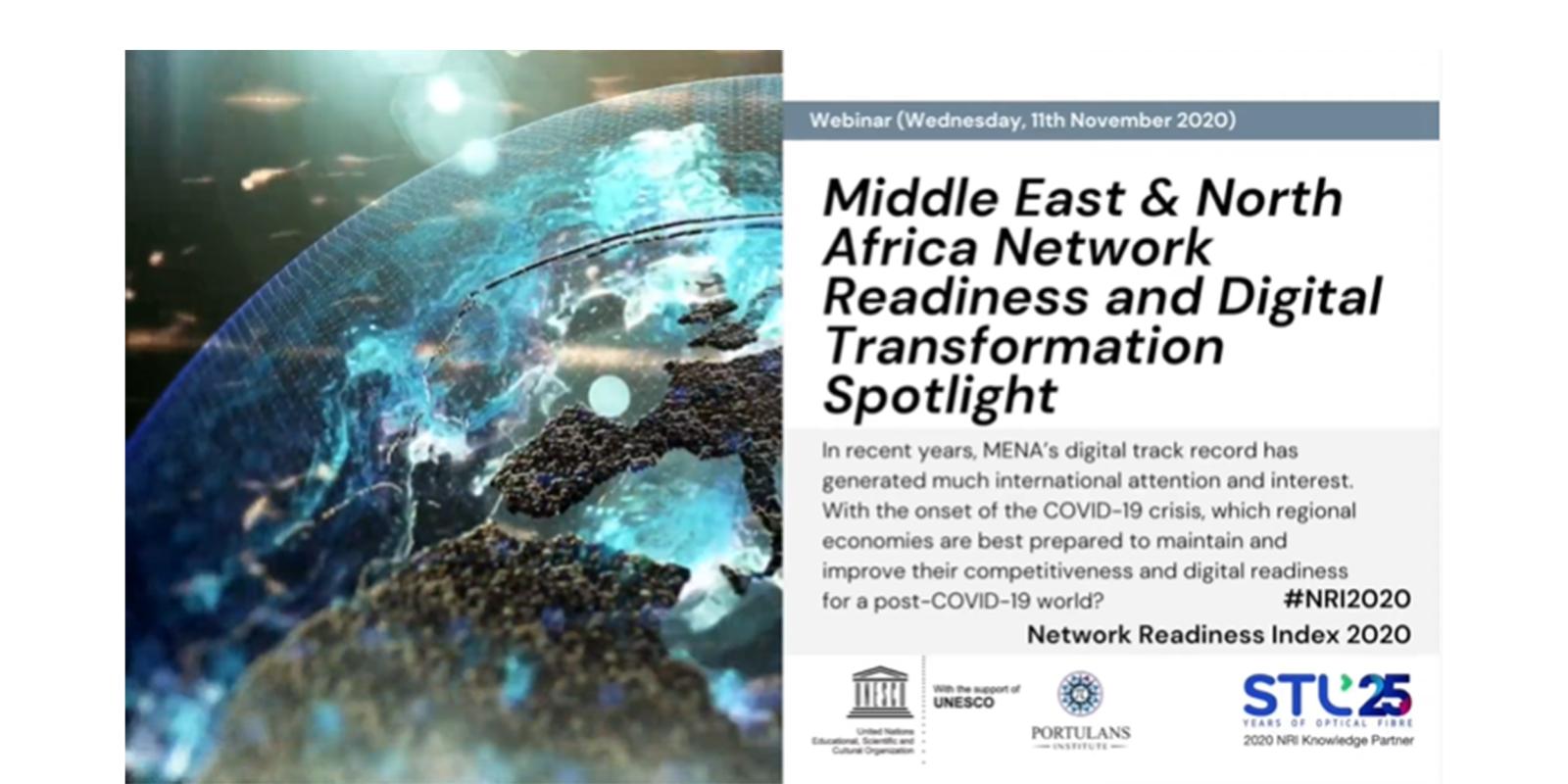
NRI 2020: A timeline of the hopes and fears of digital transformation in the Arab World
Established in 2002 by the World Economic Forum, The Network Readiness Index (NRI) is a metric that measures how prepared countries are to use the information and communications technologies (ICT) for the interest of development and competitiveness in the future. On November 11, AUC School of Business, in cooperation with UNESCO, Portland Institute, and the American Chamber of Commerce in Egypt, hosted a regional virtual panel discussing the MENA network readiness and digital transformation spotlight, as well as regional data from the 2020 network readiness index report titled “Accelerating Digital Transformation in a post-COVID Global Economy.”
The NRI model recognizes digital technologies' pervasiveness in today’s networked world and rests on four fundamental dimensions: technology, people, governance, and impact. This holistic approach means that the NRI covers issues ranging from future technologies such as artificial intelligence (AI) and the Internet of Things (IoT) to the role of digital transformation in reaching the Sustainable Development Goals (SDGs). This year, Egypt ranked eighth regionally and 84th globally with a score of 42.56. It is important to note that the 2020 NRI report featured 134 economies, which account for 98 percent of the world’s gross domestic product (GDP).
Lessons learned from 2020
According to Bruno Lanvin, executive director for global indices at INSEAD, and director, Portulans institute, one of the main messages derived from this year's report is the urgent need for digital transformation to become “system-wide.” The world witnessed how the COVID-19 pandemic accelerated digitization. It is the perfect opportunity to institutionalize and formalize this transformation, especially that digital transformation can help the accelerated implementation of SDGs, which many Arab countries are working very hard on.
However, digitizing at the right time and seizing the perfect opportunity is not enough. Successful and sustainable digital transformation relies on three important pillars: trust, security, and cooperation, especially in today’s redefined globalized world. Not to mention the importance of education and the cruciality of re-skilling the current and future workforce. "The MENA region is a young region; we should focus on upskilling the youth to address different issues and engage them in global debates,” said Lavin.
This remark, however, was followed by an even more worrisome, yet crucial, one by Egypt’s Advisor to the Minister of Communications and Information Technology Ahmed Tantawy, who stated that “sometimes we focus on training the youth, and we forget about the leaders who should also be moving along the same lines.” This point is very relevant, especially in Arab countries, where decision-makers still fall in line with the average age of active heads of state in the Middle East, currently at 68 years old, and where decisions are usually made from a top-down approach.
More obstacles along the way
On the other hand, digital transformation not only needs political readiness but financial capabilities as well. Marolla Haddad, senior digital development policy specialist and the digital development GP at the world bank, noted that to accelerate transformation, Arab countries “should invest more in fiber and enhance the infrastructure to promote access and service quality." There is no wonder why the richest Arab countries, namely UAE and Saudi Arabia, made it to the top of this year’s NRI.
Time is also a significant factor in transformation. Dean Sherif Kamel and Nagla Rizk, professor of economics and founding director of access to knowledge for development center (A2K4D), stressed the risk of falling behind in a highly competitive and hyperfast evolving world. "If skills are not developed on time, I'm afraid that we will lag and fall behind,” warned Rizk.
To conclude, digital transformation is not simply goal companies, or countries are trying to reach, to check it off their to-do list. It is a long and complex journey that is meant to last. A journey where variables change every year and where there is a new trend to follow every day, a new technology to implement, and a new system to dismantle, restructure, and update.
Click here to watch the full session or here to watch a quick recap of this year’s NRI report's regional stats. Read more about The Network Readiness Index (NRI) in this article by Business Forward.
